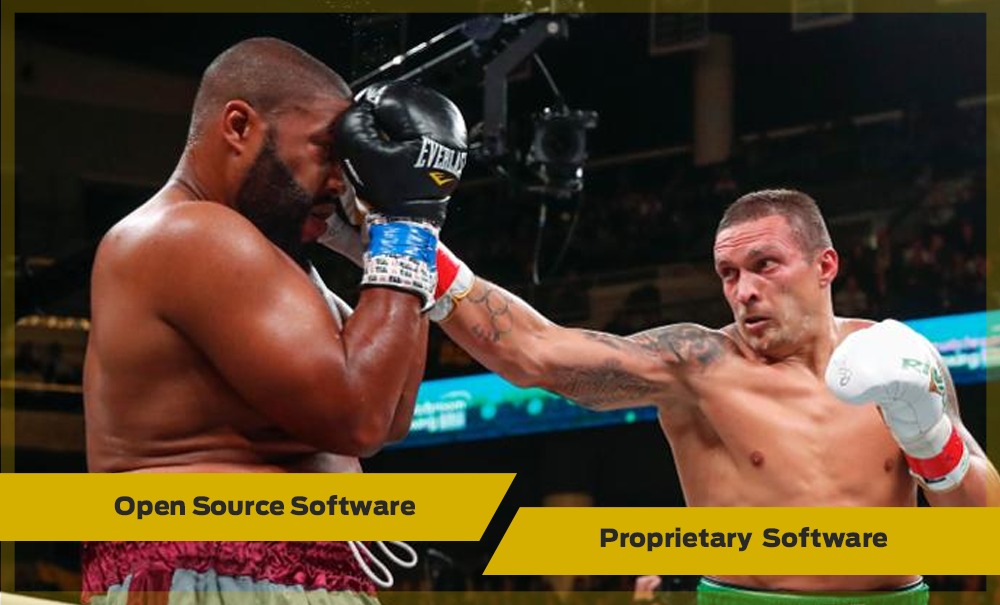In the realm of programming, organizations face a basic choice while choosing the devices and innovations that self discipline their tasks. One of the key decisions they should make is whether to select open source or restrictive programming. The two choices accompany their own arrangement of benefits and drawbacks, and the choice can fundamentally influence an organization’s proficiency, adaptability, and main concern. In this article, we will investigate the critical contrasts between open source and exclusive programming, assisting you with pursuing an educated decision for your business.
Grasping Open Source Programming
Open source programming is based on a cooperative model where the source code is unreservedly accessible for anybody to see, change, and disperse. This implies that designers overall can add to its improvement and adjust it to their particular requirements. Here are a portion of the critical qualities of open source programming:
1. Cost-Effectiveness:
One of the main benefits of open source programming is its expense adequacy. Since it is openly accessible, organizations can save money on permitting charges, making it an alluring choice, particularly for new businesses and little endeavors with restricted financial plans.
2. Adaptability and Customization:
Open source programming considers more noteworthy customization. Organizations can fit the product to meet their particular necessities, guaranteeing that it adjusts impeccably with their business processes.
3. Local area Backing:
The open source local area is known for its dynamic help and advancement endeavors. With a tremendous organization of patrons, issues are frequently recognized and settled rapidly, diminishing the gamble of weaknesses and bugs.
4. Straightforwardness:
Straightforwardness is a center guideline of open source programming. Organizations can investigate the source code to confirm its security, which is especially essential for applications taking care of delicate information.
5. No Merchant Lock-In:
Picking open source programming limits seller secure. You are not subject to a solitary seller for updates, upkeep, or backing.
Upsides and downsides of Exclusive Programming
Then again, restrictive programming is created and claimed by a solitary association or organization. Admittance to the source code is limited, and clients should commonly buy licenses for its utilization. We should dig into the upsides and downsides of exclusive programming:
1. Dependability and Backing:
Exclusive programming frequently accompanies devoted help from the merchant. Organizations can depend on opportune updates, patches, and client help, which can be consoling for strategic applications.
2. Coordination and Similarity:
Exclusive programming is intended to work consistently inside its biological system, which can improve on mix and similarity with other restrictive apparatuses. This can be favorable for organizations previously put resources into a specific seller’s biological system.
3. Licensed innovation Assurance:
Exclusive programming offers more grounded licensed innovation security starting from the source code isn’t available to people in general. This can be crucial for organizations with one of a kind and creative programming arrangements.
4. Authorizing Expenses:
The essential disadvantage of exclusive programming is the expense. Permitting expenses can be significant, especially for enormous undertakings, and can turn into a critical piece of the IT spending plan.
5. Restricted Customization:
Customization choices for exclusive programming are many times restricted. Organizations might need to adjust their cycles to fit the product’s capacities, instead of the reverse way around.
Going with the Best Decision
Now that we’ve inspected the qualities and advantages and disadvantages of both open source and restrictive programming, this has yet to be addressed: how would you go with the ideal decision for your business?
Think about Your Necessities: Begin by assessing your business’ particular requirements and objectives. What functionalities are critical for your activities? What level of customization do you require? Understanding your necessities is the most important phase in settling on an educated choice.
Spending plan Imperatives: Evaluate your financial plan limitations. Private ventures or new businesses with restricted assets might find open source programming more practical, while bigger endeavors might put resources into exclusive arrangements with committed help.
Long haul Technique: Think about your drawn out methodology. In the event that you expect quick development or advancing necessities, the adaptability and versatility of open source programming might be favorable.
Seller Biological system: On the off chance that you are as of now profoundly incorporated with a particular merchant’s environment, exclusive programming from a similar seller might offer better similarity and usability.
Security and Consistence: In the event that your business works in a profoundly controlled industry or handles delicate information, restrictive programming might give the degree of safety and consistence important to meet your legitimate commitments.
Local area and Backing: Assess the accessibility of local area support for open source arrangements and seller support for exclusive ones. This can essentially affect your capacity to determine issues and stay up with the latest.
All in all, the decision between open source and exclusive programming is definitely not a one-size-fits-all choice. It relies upon your novel business necessities, spending plan, long haul system, and the degree of customization and backing you want. Via cautiously gauging these elements, you can go with the ideal decision that will drive your business forward and engage your groups to accomplish their objectives.

